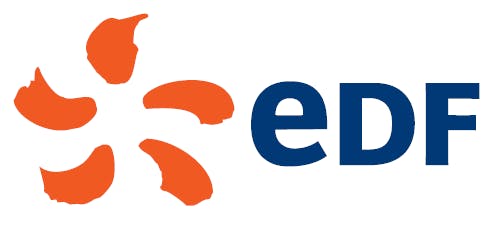3.5.2.4.3 Social dialogue metrics
The Group’s commitment(1)
The social dialogue indicator selected at the Group level measures the existence of collective agreements in the key companies controlled. While taking into account certain particularities encountered internationally, the commitment aims to place the social performance measured by this indicator at a rate of over 87% of employees covered in the consolidated scope.
Rate of employees covered by a collective bargaining agreement (%)

2020 : 87,2
Target : >87
Key non-financial performance indicator
The methodology for this indicator is set out in detail in section 3.7.2.2"Details on performance indicators".
Qualitative measurement of social dialogue
On a qualitative level, the CSR Agreement Monitoring Committee oversees the implementation of the CSR action plans in the Group’s divisions and subsidiaries. In order to better respond to the strategic challenges of each business line, these action plans are not standardised, but must comply with certain methodological principles designed to promote continuous improvement.
3.5.2.5 Transformation drivers
3.5.2.5.1 Integration of the commitments into the Group’s strategic process and project screening
The commitments are implemented and set out in screening letters specifying the contribution of each of the Group’s entities and subsidiaries to the achievement of the common objective. The system for monitoring these commitments is integrated into the Group’s strategic planning loop. Annual performance reviews allow entities and subsidiaries to monitor and control their actual performance.
Similarly, projects and investments subject to the approval of the Group’s various Commitments Committees, and particularly those of the Group Executive Committee(2) (CECEG) and the International Business Development Committee (CBDI) that are the subject of a specific opinion of the Sustainable Development Department based on a screening grid that translates the issues of the Group’s CSR commitments into operational terms(3). Where necessary, the Sustainable Development Department organises due diligence investigations specific to these issues.
3.5.2.5.2 The environmental management system (EMS)
In order to implement the goals and actions based on its sustainable development commitments and policy, the EDF group has set up a Group-wide environmental management mechanism using an environmental management system (EMS). This system is ISO 14001: 2015 certified by the Afnor certification external expert, for a scope representing almost all the consolidated revenue of EDF and its subsidiaries (excluding Enedis) and shareholdings. All of industrial sites are covered by an EMS and, for all thermal, nuclear and hydropower generation sites in Europe, this system is certified. The environmental actions adopted are deployed at all entities and subsidiaries via implementation of the Group’s SD policy goals.
3.5.2.5.3Predictive watch networks
EDF anticipates changes to environmental and energy policies in order to take appropriate measures to guarantee regulatory compliance and manage business integration or reputational risk issues. To this end, the Sustainable Development Division coordinates a predictive watch system that mobilises and coordinates the Group’s experts. This process is based on the work of thematic groups known as “watch networks”: water, waste and soil, air, biodiversity, industrial risks, energy efficiency, energy poverty, health and climate change, sustainable finance. Each of these networks comprises fifteen members from different Group businesses that meet every quarter to share an overall vision. Each network works closely with the Legal, Public Affairs and European Affairs Divisions. The managers of each network meet every month as a Sustainable Development Agency which monitors the transversality of approaches and ensures that the Group’s challenges are optimally taken into consideration with an overall, long-term view. EDF was considered by the Influence Map think tank to be one of the 17 businesses most actively supporting regulation in accordance with the Paris Agreements(4).
3.5.2.5.4Controversy management process
The EDF group attaches great importance to identifying, preventing and mitigating the risks of serious human rights, environmental and health and safety risks in all its activities and projects. Accordingly, in order to identify and anticipate the risks of ESG (Environment, Social and Governance) controversies, EDF has set up a dual system for managing controversies:
- pursuant to its risk anticipation approach, and thanks to monitoring tools(5), EDF
- identifies the risks of ESG controversies in France and internationally to which its operating activities and projects may be exposed,
- classifies these risks in consultation with the relevant entities and countries,
- decides on appropriate measures and/or communication;
- when reacting to the occurrence of risks, EDF responds systematically and transparently to rating agencies that ask for explanations on issues they have deemed controversial. This process is applied in particular when screening projects eligible for EDF’s green emissions financing.
3.5.2.5.5 Management of environmental risks
Environmental risks, including those associated with climate change, are fully integrated into the Group’s EMS and internal control system in coordination with the Group risk management function. They are subject to action
(1) This Group performance indicator is new in 2020, and has been selected in response to the Group’s This Group performance indicator is new in 2020, and has been selected in response to the Group’s raison d’être raison d’être and new CSR challenges and commitments (see and new CSR challenges and commitments (see the introduction to chapter 3 and section 3.3.3 “Equality, diversity, inclusion”). the introduction to chapter 3 and section 3.3.3 “Equality, diversity, inclusion”).
(2) This undertaking concerns new projects involving investments of more than €50 million, entailing a significant impact on regions and the environment. The Group plans to lower this investment threshold to €30 million by 2030.
(3) See the high-stake non-financial issues and the materiality matrix in the introduction to chapter 3.
(4) How companies really impact progress on climate, 2019, influencemap.org/climate-lobbying.
(5) Such as RepRisk.
